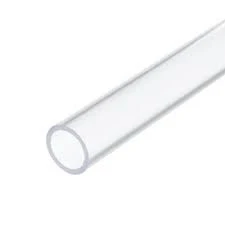Sep . 30, 2024 05:32 Back to list
Building a DIY Drip Irrigation System Using PVC Pipes for Efficient Watering
Drip Irrigation from PVC Pipe An Innovative Approach to Efficient Water Use
In the face of increasing water scarcity and the growing need for sustainable agricultural practices, innovative irrigation methods are becoming more pivotal. One of the most effective and cost-efficient solutions is drip irrigation, particularly when using PVC (polyvinyl chloride) pipes. This innovative approach not only enhances water efficiency but also promotes healthier plant growth, making it an ideal choice for farmers and gardeners alike.
Drip irrigation is a method that delivers water directly to the base of plants, minimizing evaporation and runoff. With traditional irrigation techniques, a significant amount of water is often wasted due to surface runoff or evaporation. In contrast, drip irrigation allows for precise control over the volume and timing of water application, ensuring that plants receive just what they need without excess.
Drip Irrigation from PVC Pipe An Innovative Approach to Efficient Water Use
Setting up a drip irrigation system using PVC pipes is relatively straightforward, making it accessible for both small-scale gardeners and large agricultural operations. The first step involves planning the layout of the system, which depends on the size of the area to be irrigated and the type of crops being grown. Properly spacing the plants is crucial, as it determines the arrangement of the PVC pipes and the drip emitters.
drip irrigation from pvc pipe

Once the layout is determined, the next step is to cut the PVC pipes to the desired lengths and connect them using suitable fittings. Each segment of the pipe system will require drip emitters, which can be purchased or made from PVC as well. These emitters are designed to release water at a slow, measured rate, ensuring that moisture reaches the plant roots directly.
Another critical consideration when installing a drip irrigation system is the water source. The system should be connected to a reliable water supply, and a filtration system may be necessary to prevent clogging of the emitters. Additionally, it's essential to install a pressure regulator to maintain optimal water pressure within the system, ensuring even distribution.
The benefits of drip irrigation with PVC pipes extend beyond just water conservation. This method also promotes healthier crops by reducing weed growth and preventing soil erosion. With less surface water available, weeds are less likely to thrive, allowing the main plants to receive the nutrients and water they need without competition. Furthermore, as water is delivered directly to the roots, there is less chance of soil erosion, which can be a significant problem in traditional watering methods.
In terms of environmental impact, using drip irrigation with PVC pipes is a sustainable practice that can significantly lower water usage—sometimes by as much as 50% compared to conventional methods. This efficiency not only conserves a vital resource but also reduces irrigation costs, making it an economically viable solution for farmers and gardeners alike.
In conclusion, drip irrigation from PVC pipes represents a modern, efficient approach to water management in agriculture. With its numerous advantages—including durability, ease of installation, and significant water savings—this system offers an effective means of growing healthy crops while minimizing environmental impact. As global water resources continue to dwindle, adopting such innovative irrigation practices will be essential in ensuring food security and promoting sustainable agricultural practices for future generations. Implementing a drip irrigation system using PVC pipes is not just a step towards efficient water use; it is a step towards a more sustainable, productive world.
-
Premium PVC Soft Sheets: Clear, Flexible & Durable
NewsAug.12,2025
-
Premium PVC Round Rods: Durable, Chemical Resistant, Easy to Machine
NewsAug.11,2025
-
PP U-channel: Chemical-Resistant, Lightweight & Durable
NewsAug.10,2025
-
Transparent PVC Pipe: Clear Flexible Tubing for Fluids
NewsAug.09,2025
-
Durable PP Rigid Sheet: Versatile & High-Quality Plastic Panels
NewsAug.08,2025
-
Premium Glossy PP Rigid Sheet – Durable & Versatile
NewsAug.07,2025

